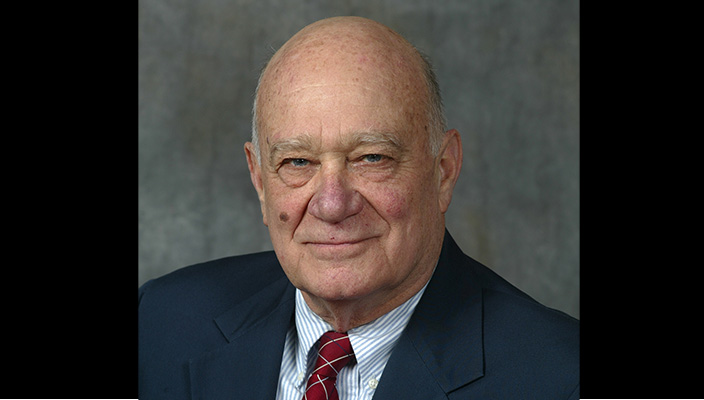Is there a tipping point group of voters that can be tapped for the 2020 elections? Please check some context below; then consider the proposed group.
Jacob Bronowski advocated decades ago: “Knowledge is our destiny.” Will Americans be eager to expand and deepen their understandings of citizenship and democracy if the current political confrontations are sustained into a succession of “teachable moments?”
The early impeachment hearings have already generated conflicts and controversies. Will some citizens, more than others, be eager to make informed judgments based on reliable data? How will different citizens view what Lincoln called the “beacons” of American democracy?
Attentive citizens will respond in terms of how effectively and accurately data is conveyed to them. Not many folks regularly read the U.S. Constitution.
The process by the House majority took a significant direction last week by focusing on a particular word in the impeachment clause.
Article II, Section 4 of the Constitution states: “The President, Vice President and all civil Officers of the United States, shall be removed from Office on Impeachment for, and Conviction of, Treason, Bribery, or other high Crimes and Misdemeanors.”
I have highlighted the word “Bribery” because the House leaders have decided to make this the key theme (that does not mean that other charges, including “Treason” may not lie ahead). To mobilize voters in complex circumstances, the rule of thumb for politicians is to use the so-called “KISS” strategy (“Keep It Simple Stupid”).
Some have said that the President was not engaged in bribery; others have argued that it was at most “attempted” bribery without consequence (although critics point out that military aid was delayed to Ukraine for months while the President awaited a “favor” from that nation’s president). Legal experts say that attempted bribery is also a crime.
Will use of “bribery” cancel the mild Latin revival of quid pro quo?
The president’s chief of staff has asserted that these kinds of trade-offs occur all the time: “Get used to it.” Will there be tipping point groups that conclude, at the very least, that the President attempted bribery, and that conduct alone rises to the level of impeachment and conviction?
A few days ago, Gerard Baker, the former editor of The Wall Street Journal advised regarding the President: “He did it and shouldn’t have. But it should be left to the voters to decide.” Mr. Baker continues: “Something is different here. Demanding that a foreign government investigate your domestic opponent crosses a pretty bright line of propriety.” Still, Mr. Baker concludes, “With an election less than a year away, isn’t the ballot box a better place to try a president’s questionable judgment?”
Last week on the program “Reliable Sources,” former White House Communications Director (and North Shore resident) Anthony Scaramucci accused the president of committing “full-blown traitorous activity.”
Only a year ago, Scaramucci published “The Blue Collar President” in which he argued the Chief Executive had to be like a bulldozer “to drain the swamp.” Now, he and others see the President and his convicted ally Roger Stone as “the swamp.”
Many scholars join the House majority in saying it is the duty of Congress to exercise oversight, particularly regarding executive abuses of power.
Jill Lepore writing about the history of impeachment in the Oct. 29 New Yorker emphasizes points made by conservative writer George Will and most historians and political scientists. When the Constitution was drafted in 1787 it was not intended to create three co-equal branches of the national government. The Madisonian view prevailed in Article I that Congress had pre-eminent power and authority.
It is the case over decades that we have witnessed the expansion of the “Imperial Presidency” with chief executives of both parties taking more and more power while Congress has often been passive. Are we satisfied to have any president, from any party with such vast influence?
E.L Doctorow has written that the president who gets elected is the country everyone gets. Yale historian Paul Kennedy expands that view: “The President the United States elects is the world that everyone gets.”
Whether or not charges other than “bribery” are made against this President, he has already made more enemies in his own party than any President in all of American history. The numbers and reputations of life-long Republicans who oppose him mark the impeachment proceedings as unique.
Will the impeachment “managers” in the House be able to make a compelling case against the President that will energize young voters? They came out in record proportions in 2018 to give Democrats a huge victory in recapturing the House.
Could the impeachment witnesses (public servants who were in government for decades) bolster opposition to a President that former Republican Bret Stephens calls a crude libertine with no record of public service prior to the huckster election of 2016?
Will impeachment proceedings (even if not supported in the Senate) be the tipping point for ending a Presidency that most young people (particularly Gen Z youth, born since 1997) consider embarrassing and destructive of their values and of the nation’s “beacons” (young citizens emphasize “intersectionality” – keenly supporting diversity and inclusion – not a priority for Steven Miller and the President).
If the final day of judgment is Nov. 3, 2020, will Democrats heed the call of professor Melanye Price to “Electrify The Youth,” especially “seven million young people of color who have turned 18 since the last vote”?



